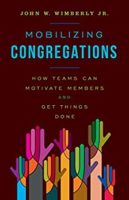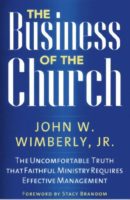
Too many congregations, presbyteries, dioceses, conferences, etc. spend enormous amounts of energy studying, debating, amending, revising, discussing, pondering decisions rather than making decisions. It is one of the reasons the millennials and Gen Zers don’t want to get involved in the church: They want to change the world, not discuss it to death. We need to demand that leaders make decisions.
As a fourth-generation Presbyterian, I was raised to worry about bishops. Their existence, I was told, centralizes power and inevitably leads to corruption. But having spent much of the last decade working with Methodist conferences, I have to say that what I was taught is dead wrong. In fact, I have become a fan of the person and function of bishops as I have experienced them in the United Methodist Church.
Why? Simply put: Someone makes decisions! Can they be wrong decisions? Of course! Like other people, bishops are human and make mistakes. But I repeat: Someone makes decisions!
I am not advocating for bishops per se (although I have come to admire of many of them). I am suggesting that bodies and individuals designated to make decisions in the church need to start making decisions. We need to stop delaying and debating and start acting boldly in ways consistent with what God is calling the church to do. We need to stop worrying about the risks of our decisions and start accepting that risk comes with being a decision maker.
Why Some Churches Grow
My father was a Presbyterian pastor in the 20th century. The church he served in Jackson, Michigan, grew dramatically—it was filled with a wonderful mixture of business leaders and working-class people. From there, he moved to Madison, Wisconsin, to a congregation filled with state government civil servants and people working at the university. The Madison church was stagnant in terms of growth during his time there.
While in seminary, I asked my father why he thought one congregation grew and the other didn’t. He said, “It wasn’t because the nineteen fifties were a time of church growth, although that helped. It was because the governing body in Jackson would consider an idea for ministry, debate it, and vote it up or down. The church in Madison would debate an idea, create a task force to consider it further and, by the time the task force reported back, the moment for action had passed. The energy was gone.”
While my dad’s analysis may sound simplistic, I don’t think it was. One governing body was focused on making decisions and getting on with ministry. The other governing body was focused on getting the process right. The latter sounds like too many church bodies today.
Who Will Make Decisions?
Who will move church decision-making bodies from inaction to bold action? I suggest the following are key players in making that happen:
Clergy. For most of my ministry, I have been reading that clergy aren’t supposed to lead so much as empower lay people to lead. OK, I get that. However, I also get that in my forty years as a pastor in the Washington, D.C. area, I saw numerous congregations rise and fall in vibrancy. What was the variable between the good and not-so-good times? Different clergy leaders. When there was a strong clergy leader (who also empowered lay people to lead), a congregation would thrive. When clergy did not embrace their organizational leadership role, the church tended to struggle. Bold, transparent, visionary clergy leadership matters. Period. Thinking lay people can perform the leadership function without the accompanying presence of strong, risk-embracing clergy leaders is at best a recipe for stagnation.
Lay leaders and congregants. At all levels of the church, too many of our governing boards have become maintenance-focused rather than growth-obsessed. Define growth however you want—growing the mission of the church is our mandate and responsibility. Lay leaders need to hold themselves and the staff they employ accountable for the presence or lack of growth in their organization.
In my experience, too many clergy are uncomfortable being held accountable for performance. I don’t blame just clergy for this problem. I blame the larger Church for allowing it to continue.
Lay leaders, in contrast, tend to work in businesses and non-profits where performance is not only expected but demanded. We need lay leaders to demand performance in our congregations and judicatories. Set performance measures, let staff and teams do their work, and then evaluate whether those performance metrics are met.
Why doesn’t this happen? Perhaps it is because we want our congregations to be loving, caring communities where everyone is accepted. Therefore, we don’t want to judge one another. That is a commendable goal. But the fact that everyone is accepted does not mean that everything is accepted! We pay staff to perform. We recruit volunteers to perform. When performance doesn’t take place, why are we afraid to ask, “Why didn’t we meet our metrics?”
Overcoming the Fear of Criticism
Making performance a sign of the church must come from lay leaders who understand the importance of performance in secular organizations. Lay leaders will be much happier when they stop spending hours listening to staff and committee reports about business as usual and, instead, hear progress reports on their ministry goals and strategies.
The avoidance of risk by some clergy and lay leaders is directly related to the fear of being criticized when things don’t work, so leaders don’t try things that might fail. Lay leaders need to change this dynamic by saying, “We have hired or elected you to positions of leadership because we trust your judgment and skills. Do what you think is best. If you fail, you can explain why. But we would rather you try something and fail than continue doing things that are not working in the 21st century.”
The clock is ticking on the church in the 21st century. As we dawdle rather than making decisions, we miss opportunities that may not come again. Let’s put pressure on all our leaders—presbyteries, dioceses, conferences, and congregational governing boards—for decisions to be made.
John Wimberly is an experienced pastor and consultant. As a consultant, he has worked with congregations and judicatories on strategic planning, staff designs for the 21st century, and congregational growth as well as financial and administrative management. He has MBA, MDiv, and PhD (theology) degrees. His books focus on effective management and leadership. John believes congregations can have a bright future!



